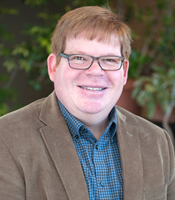 Kurt Smemo
Kurt Smemo
Director and Associate Professor Environmental Studies and Sciences Program
At Skidmore since 2015
Contact Information
Office: CIS 210J
Phone: x. 5218 (off campus: 518-580-5218)
E-mail: ksmemo@skidmore.edu
EDUCATION
- B.S. 1994, University of Montana
- M.S. 1998, University of Illinois at Urbana-Champaign
- Ph.D. 2003, Cornell University
- Postdoctoral Fellow 2003–2005, University of Michigan
COURSES TAUGHT AT SKIDMORE
- ES 105 Field Studies in Environmental Science
- ES 205 Ecosystem Science and Analysis of Forested Landscapes
- ES 308 Soil and Watershed Science for a Crowded Planet
- ES 374/375 Senior Capstone Experience in Environmental Studies and Sciences
RESEARCH INTERESTS
The Skidmore Ecosystem Biogeochemistry Laboratory studies terrestrial ecosystem ecology and biogeochemistry with a focus on forest and wetland ecosystems in relation to global environmental change. We are particularly interested in how below-ground microbial processes mediate productivity and carbon and nutrient cycling patterns at the local to global scale. Students in the lab learn techniques for measuring biogeochemical process rates and quantifying ecosystem properties across varying spatial and temporal scales. Some specific research areas in which students are involved are:
- Forest carbon and nutrient cycling in response to atmospheric deposition
- Terrestrial controls on nutrient transport to surface waters and aquatic ecosystems
- Microbial controls on the production and emission of greenhouse gases from soils and sediments
- Plant traits and soil microbial community composition as drivers of community assembly, ecosystem nutrient cycling, and soil organic matter dynamics.
RECENT PUBLICATIONS
Smemo, K.A., S.M. Petersen, L.A. Kluber, A.N. Shaw, J.L. DeForest. 2021. Temporal soil enzyme patterns provide new insights into the nutrient economy of acidic hardwood forests. Biogeochemistry 155:97–112.
DeForest, J. L., R. Dorkoski, Z.B. Freedman, K.A. Smemo. 2021. Multi-year soil microbial and extracellular phosphorus enzyme response to lime and phosphate addition in temperate hardwood forests. Plant and Soil 464:391–404.
Lovejoy, C. and K.A. Smemo. 2021. Strigolactone significantly increases lead uptake by dwarf sunflower (Helianthus annuus). Bioremediation Journal 25(3):191-196.
Schneller, A.J, K.A. Smemo, C. Hobbs, C. MacKay, E. Mangan, & C. Munisteri. 2020. Crude Oil Transportation by Rail in Saratoga County, NY: Public Perceptions of Technological Risk, State Responses, and Policy. Risk, Hazards & Crisis in Public Policy 11(4):377-410.
Martinez-Cruz, K., A. Sepulveda-Jauregui, P. Casper, K. Walter Anthony, K. Smemo, F. Thalasso. 2018. Ubiquitous and significant anaerobic oxidation of methane in freshwater lake sediments. Water Research 144: 332-340.
Yavitt, J., J. Burtis, K. Smemo, M. Welsch. 2018. Plot-scale spatial variability of methane, respiration, and net nitrogen mineralization in muck-soil wetlands across a land use gradient. Geoderma 315:11-19.
Valverde-Barrantes, O.J., K.A. Smemo, L. Feinstein, M. Kershner., and C.B. Blackwood. 2018. Patterns in spatial distribution and root trait syndromes for ecto and arbuscular mycorrhizal temperate trees in a mixed broadleaf forest. Oecologia 186:731–741.
Valverde-Barrantes, O.J., A. Horning, K.A. Smemo, and C.B. Blackwood. 2016. Phylogenetically
structured traits in root systems influence arbuscular mycorrhizal colonization in
woody angiosperms. Plant and Soil 404:1–12.
Carrino-Kyker, S.R., L.A. Kluber, S.P. Petersen K.P. Coyle, C. Hewins, J.L. DeForest,
, and K.A. Smemo, and D.J. Burke. 2016. Mycorrhizal fungal communities respond to
experimental elevation of soil pH and P availability in temperate hardwood forests.
FEMS Microbiology Ecology 92(3):fiw024.
PROFESSIONAL MEMBERSHIPS
- American Geophysical Union
- Ecological Society of America
- Soil Science Society of America
- Council on Undergraduate Research
